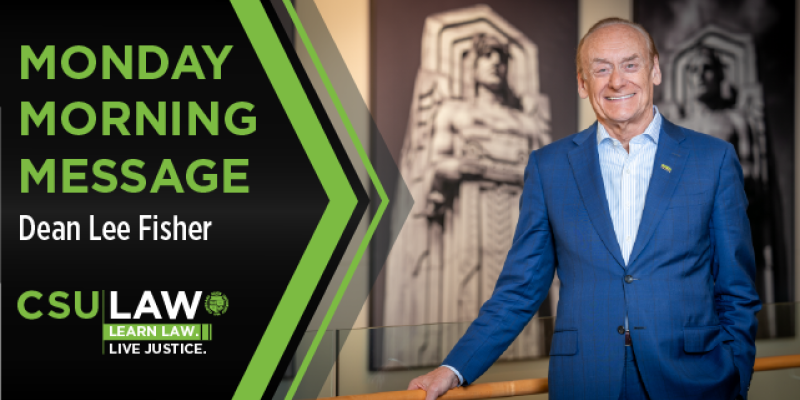
When you change the way you look at things, the things you look at change.” -Dr. Wayne Dyer
The past few days of our peaceful transition to power, the Presidential Inauguration, and the Million Women March, have prompted me to reflect more about the best framework and mindset for facing our mounting challenges. As a country, we face growing economic inequality, increased social and political divisiveness, and a world “in disarray.” As a law school, we face national declining enrollment, intense competition for the best students, mounting student debt, and a fast-changing legal market.
So it’s no surprise that many would be pessimistic about our future, particularly because of “negativity bias,” the human tendency to give more weight to negative information and experiences than positive ones. But I want to make a case for optimism.
My good friend, Richard Haass, the President of the Council on Foreign Relations, has written a fascinating new book, A World in Disarray. Richard notes that we face a world of increasing uncertainty about America’s place in the world where power is widely distributed and borders count for less. Yet, despite the book’s title, I would argue that Richard’s world view is not pessimistic. Rather, it is a healthy mix of optimism and realism. He notes the many positive signs of stability and progress in the world, but cautions that it would be naïve and dangerous to ignore the increasing threats to world order.
More than ever, I believe that “The Stockdale Paradox” is the best framework for addressing our challenges - as a country, as a law school, and, yes, as human beings facing the challenges of our everyday lives. The Stockdale Paradox is named after Admiral Jim Stockdale, the highest ranking naval officer to be held captive during the Vietnam War. Stockdale was tortured for eight years by his captors, and never had much reason to believe he would survive the prison camp.
Here’s the paradox. Stockdale, like my father-in-law, Mike Zone, who was a prisoner of war in WWII, survived because he was an optimist. However, Stockdale noted that it was often the most optimistic of his prison mates who failed to make it out alive. “They were the ones who said, ‘We’re going to be out by Christmas.’ And Christmas would come, and Christmas would go. Then they’d say, ‘We’re going to be out by Easter.’ And Easter would come, and Easter would go. And then Thanksgiving, and then it would be Christmas again. And they died of a broken heart.”
Unfortunately, those optimistic prisoners failed to confront the reality of their situation. Their self-delusion might have made it easier on them in the short-term, but when they were eventually forced to face reality, it became too much and they couldn’t handle it. The pessimistic prisoners didn’t fare any better. They lost hope and believed that they would die as prisoners. They, too, died of broken hearts.
Stockdale, on the other hand, accepted the reality of his situation. He knew he was unlikely to be freed anytime soon, but he stepped up and did everything he could to lift the morale and prolong the lives of his fellow prisoners. Even more importantly, he never doubted that he would survive and be freed.
I think the lesson is that we must confront the facts of our current challenges but at the same time never lose faith, hope, and optimism that we will overcome them. In the coming weeks, months, and years, realistic optimism is not a luxury- it’s a moral imperative for not only looking at our challenges in a new way, but for facing and changing them for the better.
Optimistically,
Lee
For copies of past messages, please go to this link: Monday Morning Messages.
